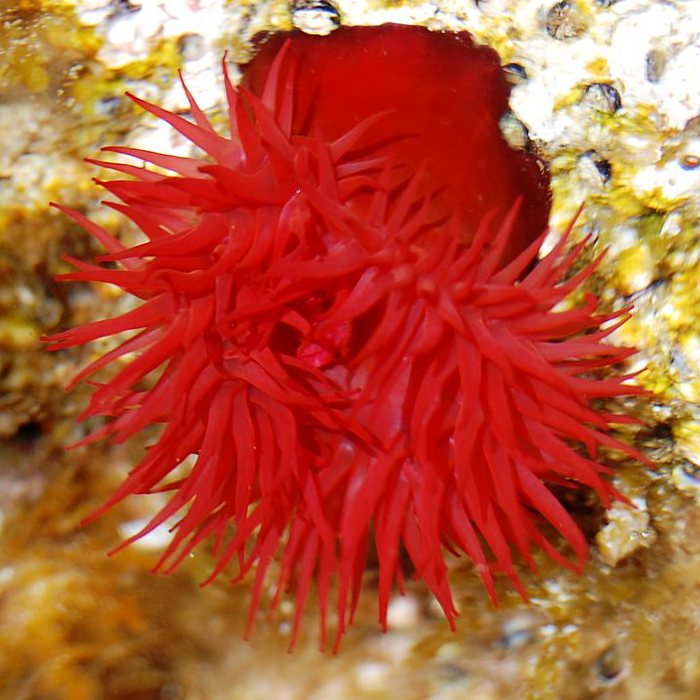
Actinia equina (Beadlet anemone, AE1) Assembly and Gene Annotation
About Actinia equina
Actinia equina The beadlet anemone (Actinia equina (L.)) is one of the most familiar organisms of the North European intertidal zone. Once considered a single, morphologically variable species across northern Europe, it is now recognised as one member of a variable species complex.[1]
Its range extends to the Mediterranean Sea, and along the Atlantic coast of Africa as far south as South Africa. Actinia equina can be found both in exposed and sheltered situations. It is highly adapted to the intertidal zone as it can tolerate both high temperatures and desiccation.[2]
Picture credit (Creative Commons BY-SA 3.0): Esculapio (Wikimedia Commons user), 2008
Assembly
The Actinia equina (AE1 strain) genome was sequenced at the Centre for Genomic Research, University of Liverpool.
Assembly was undertaken using three separate assembly methods: CANU v1.7, SMARTdenovo, WTDBG and submitted by the Liverpool John Moores University[1].
The assembly was imported from GenBank.
Annotation
The Actinia equina gene models were provided as GFF3 file by the School of Biological and Environmental Sciences, Liverpool John Moores University)[1].
References
The genome of the sea anemone Actinia equina (L.): Meiotic toolkit genes and the question of sexual reproduction. Wilding CS, Fletcher N, Smith EK, Prentis P, Weedall GD, Stewart Z. Mar Genomics. 2020 Oct; 53:100753. doi: 10.1016/j.margen.2020.100753.
Beadlet_anemone. Wikipedia, The Free Encyclopedia. (accessed January 7, 2021)
Picture credit (Creative Commons BY-SA 3.0): Esculapio (Wikimedia Commons user), 2008
Statistics
Summary
| Assembly | equina_smartden.arrow4.noredun, INSDC Assembly GCA_011057435.1, |
| Database version | 115.1 |
| Golden Path Length | 409,058,306 |
| Genebuild by | Liverpool John Moores University |
| Genebuild method | Import |
| Data source | Liverpool John Moores University |
Gene counts
| Coding genes | 47,671 |
| Non coding genes | 7,980 |
| Small non coding genes | 7,980 |
| Gene transcripts | 63,587 |



![Follow us on Twitter! [twitter logo]](/i/twitter.png)
